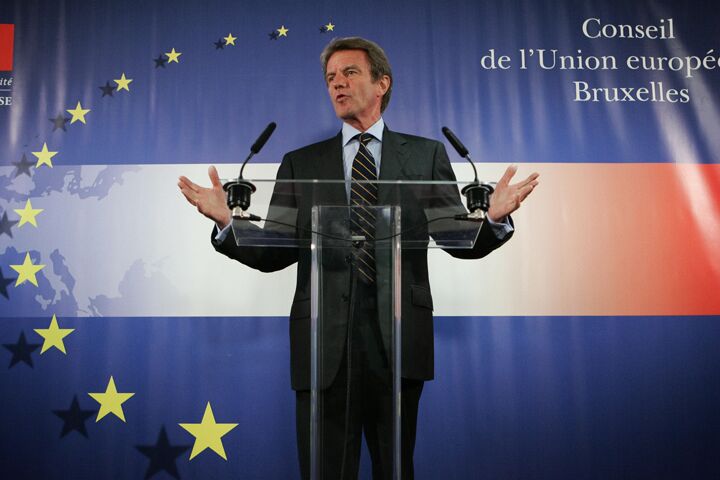
EU Parliament to Block Attempts to Water Down Reform Treaty
The EU has unveiled the draft text of its new treaty at an intergovernmental conference (igc) in Brussels. Although the conference is intended as a means to amend an EU treaty, it appears the actual intent of politicians is to ram the document through with as few changes as possible.
As the conference began, German mep Elmar Brok told the press: “The igc should not attempt to unpick or renegotiate the treaty. This is not possible. Parliament will be watchful that the treaty mandate received from the European Council will not be watered down and will remain in place.”
This sort of rhetoric has been a hallmark of the new treaty.
German Chancellor Angela Merkel took steps to protect the treaty from alteration before the meeting ever began. At the EU summit in June, she “rallied EU leaders around an extremely detailed negotiating mandate for the igc, designed to leave as little room for political discussion as possible,” according to EUobserver (July 23).
Legal experts will look over the document on Tuesday and Wednesday. The intent of the new Portuguese presidency is to “keep the talks at the legal level as much as possible” (ibid.). Politicians want to make sure everything is legal, but want the actual terms of the treaty to remain untouched. Political negotiators are on standby, but the hope is that they won’t be used at all. If all goes well, the treaty could be signed by December.
This eventuality is remarkable, considering the treaty is essentially the failed EU constitution in a shiny new package. The former chairman of the European Convention, who drafted the constitution, Valery d’Estaing, said the changes are “cosmetic.” Open Europe found that 96 percent of the text is identical.
With the new treaty, some politicians hope to put most of the terms of the EU constitution in force without risking a referendum from the people. Although critics and supporters alike acknowledge that there is no substantive difference between the treaty and the constitution, EU politicians are arguing that no referendum is necessary because the treaty is not a constitution.
“The concept of a constitution has been abandoned. That is made clear in the new treaty,” British Foreign Minister David Miliband said. “In that context we don’t think there needs to be a constitutional referendum.”
The only significant difference is that a constitution would require a vote from the people—which isn’t part of the new strategy.
This cloaked action is aimed squarely at Britain, where a referendum for the treaty would likely fail as it did in France and the Netherlands.
New UK Prime Minister Gordon Brown is protecting the treaty as long as the “red lines” former Prime Minister Tony Blair negotiated in June are maintained. Even this stance may fail, however. While the EU has, in theory, agreed to the red lines, legal experts warn that Britain’s decision to opt out of the EU Charter of Fundamental Rights might not survive legal review.
Meanwhile, opposition to the treaty is growing in Britain. The British people want the opportunity to vote for or against it.
Being denied a vote sends its citizenry a chilling message about British sovereignty and how much power Britain will have in relation to Europe under the new treaty, which is currently only available in French. This loss of sovereignty could very well be the issue that finally drives a wedge between Britain and the rest of the EU—if the people are given a say at all.
